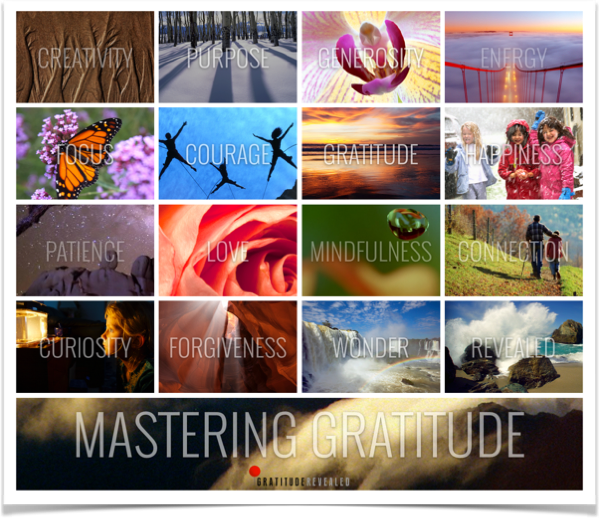Acclaimed filmmaker Louie Schwartzberg’s TED Talk on gratitude went viral. Now, through a series of short web videos, he wants to further inspire others to appreciate how virtues like gratitude can impact everyday living.
 “Gratitude is not only the greatest virtue, but the parent of all others,” wrote Roman philosopher Cicero more than two millennia ago. Filmmaker Louie Schwartzberg has succeeded in translating that central philosophical insight — and the contemporary science that supports it — into compelling videos. His “Gratitude Revealed” project, funded with a $1.1 million grant from the John Templeton Foundation, illustrates how virtues like gratitude contribute to a life well lived.
“Gratitude is not only the greatest virtue, but the parent of all others,” wrote Roman philosopher Cicero more than two millennia ago. Filmmaker Louie Schwartzberg has succeeded in translating that central philosophical insight — and the contemporary science that supports it — into compelling videos. His “Gratitude Revealed” project, funded with a $1.1 million grant from the John Templeton Foundation, illustrates how virtues like gratitude contribute to a life well lived.
Science, Philosophy, and the Good Life
For millennia, the notion that virtues were instrumental to a happy, purposeful life was supported by philosophical reflection. Recent scientific findings have converged on the same conclusion. Multiple studies confirm, for example, that those who have a sense of purpose and meaning are healthier than those who don’t. But those studies are generally written by and for specialists, not the wider public.
Schwartzberg’s approach to unlocking those secrets is a web-based series of 17 short videos that highlight virtues related to gratitude. Each episode incorporates findings from peer-reviewed studies that explain the scientific findings concerning each virtue and invites audiences to consider the importance of that virtue in their own lives.
In the episode “Creativity,” Schwartzberg follows women recently released from prison who attempt to come to grips with their pasts through comedy routines. The science behind the effort is robust: numerous studies have demonstrated that creative expression fosters better health, happiness, and growth in the wake of trauma.
“I’m trying to provide the public an immersive experience where you feel it, you achieve emotional impact,” Schwartzberg says. “You can write about wonder; but you have to feel wonder, you have to experience wonder.”
A More Perfect Version of Ourselves
“Gratitude Revealed” grew out of Schwartzberg’s TEDx talk on gratitude, which has been viewed nearly 5 million times on YouTube. Through his Foundation-supported work, Schwartzberg created a broad outreach project to translate science into action.
Schwartzberg was surprised by, and grateful for, the powerful audience response to the series. “Creativity” was accepted at the Napa Valley and Santa Barbara Film Festivals, while Oprah featured Schwartzberg’s “Courage” episode on her “Super Soul Sunday” program. The series as a whole has received more than 20 million views.
“The reactions I’ve received from people, especially when they watch it live, is tears,” he says. “They have been deeply touched.”
With additional funding provided by the Foundation, Schwartzberg has extended the work through a partnership with the University of California, Berkeley’s Greater Good Science Center. The partnership helped Schwartzberg assemble the scientific resources that accompany each episode, challenging viewers to put the virtues into practice. And judging by viewer feedback, Schwartzberg’s efforts are striking a chord.
“I’ve got people saying they watch some of the videos every day. They use it to align themselves,” he says. “What other show do people watch every day?”